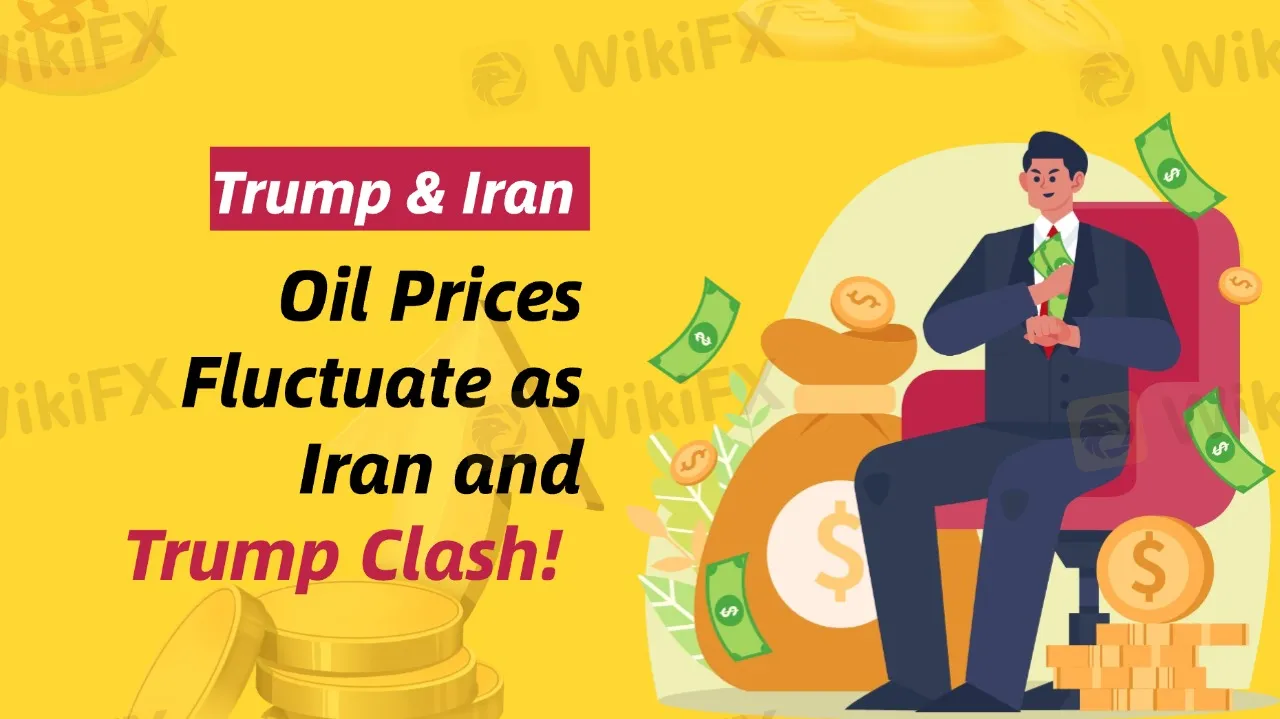简体中文
繁體中文
English
Pусский
日本語
ภาษาไทย
Tiếng Việt
Bahasa Indonesia
Español
हिन्दी
Filippiiniläinen
Français
Deutsch
Português
Türkçe
한국어
العربية
Oil Prices Fluctuate as Iran and Trump Clash!
Abstract:As Trump once again implements the "maximum pressure" policy on Iran, oil prices have become increasingly volatile, and the atmosphere in the international markets has grown more tense.

The Iranian government has consistently stated that it is willing to negotiate with the U.S., but under the condition that such talks are not conducted within the framework of the “maximum pressure” policy. Iranian Foreign Minister Abbas Araghchi clearly stated that any negotiations for lifting sanctions must be based on equality and respect, not under the threat of “maximum pressure,” as this cannot be considered negotiation, but rather surrendering to Iran.
Additionally, Iran‘s Supreme Leader Ayatollah Ali Khamenei has explicitly pointed out that he does not support negotiations with the U.S., calling Trump’s diplomatic policy reckless.
Trump's Pressure on Iran
The Trump administration not only withdrew from the Iran nuclear deal but also reinstated severe sanctions on Iran, even targeting the countrys oil exports. After the U.S. withdrew from the agreement in 2018, Trump attempted to force Iran to make concessions on nuclear issues through economic pressure. Recently, the U.S. intensified its sanctions on Iran, announcing sanctions on individuals and companies involved in transporting Iranian oil to China.
Trump has clearly stated that Iran cannot possess nuclear weapons and has called for a “verified nuclear peace agreement,” while Iran insists that its nuclear program is for peaceful purposes and denies any intention to develop nuclear weapons. As sanctions continue to escalate, the tension between the two sides is also increasing.
In response to Trump‘s “maximum pressure,” Iran has taken a hard stance, stating that it will never negotiate under the increasing sanctions. Iranian Oil Minister Bijan Zanganeh stated directly that Trump's maximum pressure policy, particularly the aim to reduce Iran's oil exports to zero, has failed. As restrictions on Iranian oil exports become more severe, Iran's countermeasures become more complex, showing that the U.S. cannot easily achieve its goal of bringing Iran’s oil exports to zero.
The ongoing battle between Iran and Trump has created a volatile situation for oil prices. For global investors, closely monitoring the diplomatic and economic policy developments between the two countries will help in navigating the opportunities and risks posed by oil price fluctuations.
Disclaimer:
The views in this article only represent the author's personal views, and do not constitute investment advice on this platform. This platform does not guarantee the accuracy, completeness and timeliness of the information in the article, and will not be liable for any loss caused by the use of or reliance on the information in the article.
Read more

Interactive Brokers Enhance Account Security with FDIC Coverage
Interactive Brokers now offers up to $5M FDIC insurance for individual accounts, boosting protection on cash held in brokerage accounts starting May 2025.

SFC Issues Restriction Notice to GA (Int’l) Capital Management Limited Over Regulatory Concerns
The Securities and Futures Commission (SFC) of Hong Kong has issued a restriction notice against GA (Int’l) Capital Management Limited (GCML), raising serious concerns about the firm’s integrity, reliability, and competence in carrying out its regulated activities.

Nonfarm Data Lifts Market Sentiment, U.S. Stocks Rebound Strongly
U.S. nonfarm payrolls for May slightly exceeded expectations, stabilizing investor sentiment and easing fears of a hard landing. This upbeat data sent U.S. equities broadly higher, led by tech stocks, with the Dow and S&P 500 posting significant gains. However, behind the optimism lies a fresh round of market debate over the Federal Reserve’s rate path, with uncertainty around inflation and interest rates remaining a key risk ahead.

OctaFX Flagged by Malaysian Authorities
OctaFX has been officially listed on warning lists by both Bank Negara Malaysia (BNM) and the Securities Commission Malaysia (SC). These alerts raise serious concerns about the broker’s status and whether it is legally allowed to operate in Malaysia.
WikiFX Broker
Latest News
IronFX Broker Review 2025: A Comprehensive Analysis of Trustworthiness and Performance
OctaFX Flagged by Malaysian Authorities
Nonfarm Data Lifts Market Sentiment, U.S. Stocks Rebound Strongly
Interactive Brokers Enhances PortfolioAnalyst with New Features
Why Your Worst Enemy in Trading Might Be You
Errante Broker Review
Interactive Brokers Enhance Account Security with FDIC Coverage
SFC Issues Restriction Notice to GA (Int’l) Capital Management Limited Over Regulatory Concerns
Exnova Forex Broker Scam: Blocked Accounts, Lost Funds
Currency Calculator


